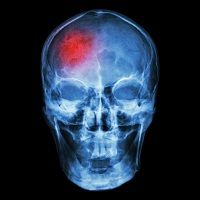HIV Increases Risk of Stroke Regardless of Blood Pressure Status
A recent analysis determined that the human immunodeficiency virus (HIV) is the leading factor for stroke in African adults.

A recent analysis determined that the human immunodeficiency virus (HIV) is the leading factor for stroke in African adults.
Many patients who suffer from stroke in African countries are young adults who do not have incidence of diabetes, obesity, smoking, or high blood pressure. So why are strokes increasing in this population? Researchers from the Institute of Infection and Global Health at the University of Liverpool set out to find out why in collaboration with the Malawi-Liverpool-Wellcome Trust Clinical Research Programme.
“The link between HIV infection and stroke is now more convincing than ever,” lead author Laura Benjamin, MRCP, PhD, a clinical lecturer in neurology at the National Institute of Health Research, said in a news release.
- The MD Magazine HIV/AIDS condition center
The connection became clear during a case-controlled study consisting of 222 patients who had a stroke compared with 503 healthy controls. Up to 42% of the stroke incidences under the age of 45 were because of HIV. The team took other factors into consideration and found no link between stroke and high blood pressure, which indicates HIV is a cause all its own.
According to the report in Neurology, those with HIV who are left untreated have an even greater risk of stroke.
“While in the longer term treatment reduces stroke risk, we were surprised to find that the risk actually increases in the first few months of therapy,” Benjamin continued. Patients were most likely to suffer a stroke during the first six months of antiretroviral therapy.
“Treatment for HIV is clearly essential, but the results of this study suggest we may have to carefully rethink how we introduce HIV treatment,” explained senior author Tom Solomon, FRCP, PhD, director of the Institute of Infection and Global Health.
So even though treatment is necessary for patients with HIV, it can bring along an increased stroke risk. This means therapy must be done in a smarter way in order to avoid such adverse effects.
“How to address this is something that the research community will need to consider, not just in sub-Saharan Africa, but in countries where HIV infection exists,” Solomon concluded.
What to Read Next >>> What We Learned About HIV in 2015